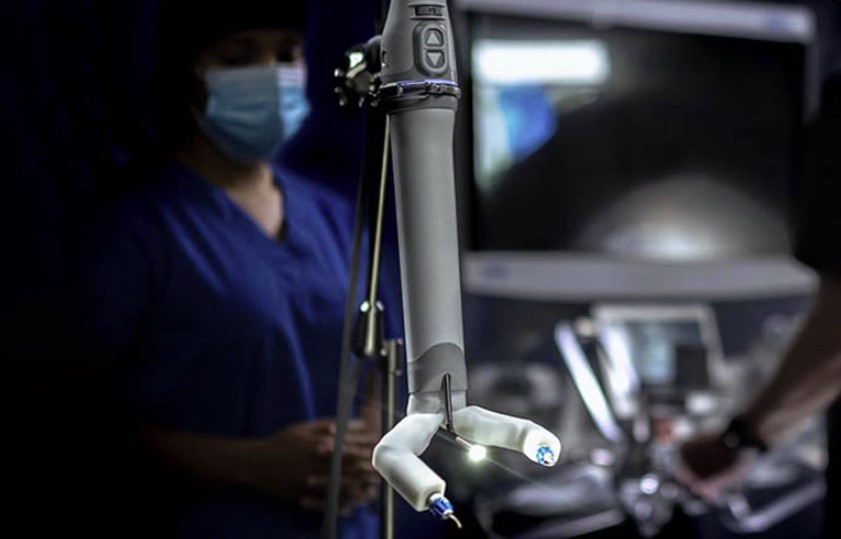NASA will send MIRA surgical robot to the International Space Station

In 2024, 'Virtual Incision' will launch its miniature robotic-assisted surgery (RAS) platform MIRA to the International Space Station. MIRA will be putting its surgical skills to the test by simulating operations in space. Inside a microwave-sized experiment locker, MIRA will perform activities similar to those done in surgery, such as cutting simulated tissue and manipulating tiny objects. The small device weighs about 2 pounds, making it perfect for tiny spacecraft missions like this one.
“The Virtual Incision MIRA platform was designed to deliver the power of a mainframe robotic-assisted surgery device in a miniaturized size, with the goal of making RAS accessible in any operating room on the planet,” John Murphy, CEO of Virtual Incision, said. “Working with NASA aboard the space station will test how MIRA can make surgery accessible in even the most faraway places.”
MIRA is now in the final stretch of a U.S. clinical trial for FDA market approval, which is under an Investigational Device Exemption (IDE). MIRA is not yet available for purchase. The robotic platform may access all four quadrants without requiring docking and undocking of an external platform because it uses a single port to enter and stay in position. It's inserted via a single port, and held in place with an adjustable stand that attaches to an operating room table instead of being docked and re-docked.
MIRA can be cleaned and sterilized between cases without the need for any extra equipment, unlike other RAS systems. The MIRA system comprises a surgeon console and a companion cart. “NASA has far-reaching ambitions for long-term space travel, and it's critical to test technology that may be useful during missions measured in months and years,” said Virtual Incision co-founder and chief technology officer Shane Farritor. “MIRA continues to expand the boundaries of what's possible in RAS, and we're pleased with its early outcomes during clinical trials. We're excited to take things a step further by helping us figure out what could be feasible in the future as space exploration becomes a more realistic possibility for humanity.”
The University of Nebraska-Lincoln was chosen to lead the research because it has a team of experts in the field, but also because its Neurosurgery Department is among the top five in the country. The project is sponsored by a grant from NASA to the University of Nebraska-Lincoln, where Farritor serves as an engineering professor, although EPSCoR at the University of Nebraska-Omaha. At the University of Nebraska-Lincoln, Dr. Farritor conducted research on whether surgical robots could be used in space. He co-founded MATRIX Medical Robotics with MD Dmitry Oleynikov.
Source: www.therobotreport.com